Rob Bignell's Blog, page 261
May 14, 2016
Writing affirmation: An outline is the gas that my creativity needs to drive down the writing road.
Among the 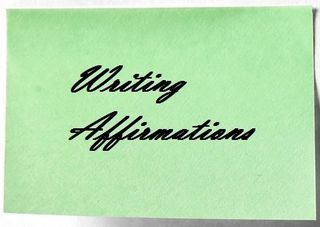 most common pieces of advice given to aspiring authors is ���Outline your book!��� I give the same advice and even follow it myself. An outline always gives my manuscript focus. It forces me to think about what I want to say so that when I do begin writing the sessions are productive. So long as the outline is treated as a flexible document, it can save you time by eliminating a lot of rewriting.
most common pieces of advice given to aspiring authors is ���Outline your book!��� I give the same advice and even follow it myself. An outline always gives my manuscript focus. It forces me to think about what I want to say so that when I do begin writing the sessions are productive. So long as the outline is treated as a flexible document, it can save you time by eliminating a lot of rewriting.
Having said that, I also know that not all writers think like that or could even work that way. And that���s okay. We���re all different, and a variety of approaches can lead to the same result, which is a completed, successful book. So if you don���t like to write outlines, that���s fine.
But what happens if you hit a block and can���t think of what to write next? A few things then may be happening.
You may have run out of gas. Writing is a mentally exhausting activity, and when your brain is tired so probably will you be physically. You then need to rejuvenate yourself. Take a break. A walk in nature does wonders for many people. Listen to some loud music while you do some housecleaning. Allow your brain to relax and then get back to the writing.
Of course, running out of gas presumes you���ve spent at least a few hours writing. If you���re hitting a block after writing only a couple of paragraphs, then the issue might be that you don���t know enough about the craft of writing to keep going. You see, modern stories ��� regardless of genre and literary quality ��� essentially unfold the same way: the main character must solve a problem, but various conflicts prevent him from achieving his goal until the story���s climax. Once you understand the intricacies of plot structure and characterization, writing the story is easy. So, read up on your craft.
If you can academically cite what should come next but still stall after a couple of paragraphs, then you probably haven���t thought enough about your story. And that���s when you need to devise an outline, even if you don���t like doing so. After all, you probably already are creating an outline and draft in your head as you write. So consider combining the two approaches ��� start writing an outline but as soon as a scene or description comes to you switch gears and write it. When your creative gas tank hits empty, go back to outline, fill up on thoughts about the story, and then step on the accelerator by drafting a scene or two.
Professional Book Editor: Having your novel, short story or nonfiction manuscript proofread or edited before submitting it can prove invaluable. In an economic climate where you face heavy competition, your writing needs a second eye to give you the edge. I can provide that second eye.
<A HREF="http://ws-na.amazon-adsystem.com/widg... Widgets</A>
Related articles
 Writing Inspiration: 'The pleasure of each word I write is returned to me multiplied.'
Writing Inspiration: 'The pleasure of each word I write is returned to me multiplied.' Today's Writing Inspiration: Your first written sentence is the foundation of all of your dreams
Today's Writing Inspiration: Your first written sentence is the foundation of all of your dreams Writing inspiration: Model a story
Writing inspiration: Model a story Write winning query letter to editors, agents
Write winning query letter to editors, agents
May 13, 2016
How to get your self-published book into a library
Getting your  book into a library is a good marketing tool. It���s the equivalent of giving away free copies in those Kindle programs, except in this case a lone free copy can seen by multiple people for several years. Your book also is on a library catalogue system, often available online, that gives people yet another way to stumble across the title.
book into a library is a good marketing tool. It���s the equivalent of giving away free copies in those Kindle programs, except in this case a lone free copy can seen by multiple people for several years. Your book also is on a library catalogue system, often available online, that gives people yet another way to stumble across the title.
Unfortunately, some libraries simply won���t even consider your book for inclusion on their shelves should they learn you���re self-published. Others will consider it but only after you���ve jumped through an incredible number of hoops. In fact, one author client of mine said after going through that process he���d have an easier time getting his retired, draft-dodging father into a veteran���s home.
First check with your library to see if they���d like to carry it. You���ll get a good idea right away about their attitude toward self-published authors. Those attitudes do vary. Indeed, the library in my hometown where I both grew up and now live doesn���t have a single copy of my 20-plus books and doesn���t answer my emails about them. The city library in the town where I attended college, however, carries almost every one of my books. And my college���s library? They don���t carry me either, though I suppose my books are exactly academia-styled material.
To get your book into a resistant library, you generally need to do the following:
��� Include Publishers Cataloging in Publication data ��� This information, offered from Quality Books, Inc., goes on your title page. It���s the info libraries use to catalog your book.
��� Obtain at least one professional book review ��� Common book reviews that libraries consider professional include Booklist, Kirkus, Library Journal, and the New York Times Book Review.
Unfortunately, both of these efforts can cost you money, so the question is if the return on investment from offering free copies in your library is worth it. After all, even if you spend the money for the publication data and for a book review in Kirkus, the library still may turn you down.
I prefer my books to be in library and always will donate a copy to one if they request it. But if a library isn���t interested, it���s not a big deal. The reality is that a book in a library won���t cover the costs of obtaining publication data or purchasing a book review. Indeed, the majority of readers looking for book buying ideas will go to any of the free online blogs or social media sites (such as Goodreads) that offer reviews of titles in their preferred genres. You���ll spend a lot less time and money targeting those specific readers via social media than you ever will by getting a book in a library. Given this, the only real reason to spend money on the effort is for reasons of pride.
Professional Book Editor: Having your novel, short story or nonfiction manuscript proofread or edited before submitting it can prove invaluable. In an economic climate where you face heavy competition, your writing needs a second eye to give you the edge. I can provide that second eye.
<A HREF="http://ws-na.amazon-adsystem.com/widg... Widgets</A>
Related articles
 'Writing Affirmations' book hits shelves
'Writing Affirmations' book hits shelves Hold contest to get more reviews of your book
Hold contest to get more reviews of your book Do Kindle DP pre-orders help or hinder sales?
Do Kindle DP pre-orders help or hinder sales? Pay attention to your author's bio pic
Pay attention to your author's bio pic
May 12, 2016
Elements of creating a successful book business
Once you 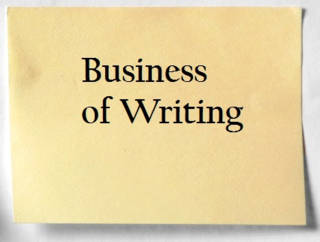 publish, you���ve essentially created a business. This business can be built up ��� it likely will expand to publishing additional titles, it probably will extend to including guest speaking and presentations, and it could even stretch to include merchandise, such as selling T-shirts and coffee mugs related to your books.
publish, you���ve essentially created a business. This business can be built up ��� it likely will expand to publishing additional titles, it probably will extend to including guest speaking and presentations, and it could even stretch to include merchandise, such as selling T-shirts and coffee mugs related to your books.
To ensure maximum success, when you set out on this new business, there first are several general questions to quickly ask yourself and to be clear in your mind about.
Begin by asking what is the purpose of your business. You want to be focused on this or you run the risk of quickly getting off track. The purpose of your business should be the solution of a problem that your customers need solved. For a writer, that could be ���to deliver entertaining novels to readers of romance��� (You���re solving the problem of readers looking for entertaining romance novels to read.) or ���to help readers learn ways they can become wealthy��� (You���re solving the problem of readers looking for ways to improve their finances.). Making money isn���t the purpose of your business. If your novels are entertaining or if your nonfiction does help readers get rich, then you will make money from book sales. Money is the reward for achieving your business purpose.
Next, ask yourself what products and services you will sell. Be very specific about this. Saying ���I will sell books��� isn���t sufficient. Answer with what kind of books you will sell. It could ���science fiction books with a focus on space opera��� or ���bicycle trail guidebooks.��� A service might be ���consulting science fiction authors about their books in progress��� or ���offering programs on bicycle repair.��� Being specific helps you focus your energies. Part of this process includes production; you should actually have the means to create such a product or to write a book. For example, if you lack a computer or a word processing software, you���ll need that; in addition, if you lack self-publishing skills (such as formatting or uploading), you���ll need to learn how to do it.
All products must have a means of distribution. For authors, this is as simple as using a print on demand service or ordering books that you sell at events in which you are the guest speaker. While authors typically are spared having to deal with this aspect of their business, they still should be familiar with how it works.
Another question to ask yourself is how you will market and promote your books and any other products and services you offer. The amount of marketing necessary to achieve book sales ��� even of an excellent book ��� often astonishes authors. You might promote your book by harnessing traditional media through press releases and interviews. You might utilize social media such as a blog, Twitter, Goodreads, Facebook, LinkedIn, and so on. You might make public appearances such as book readings and presentations at conferences related to your book���s topic.
Next, ask yourself about the nuts and bolts of your business. What paperwork do you need to file with your city, county or state to establish your business? Will you incorporate? What method of financial accounting will you use? Do you need insurance? These essentially are questions related to the establishment and functioning of your business. The questions to answer are many, and most authors have little inkling of what they even are.
Finally, you���ll have to ask yourself about strategy and planning. Once you���ve answered the questions above, you���ll need to think about how you���re going to achieve the purpose of your business. What is your timeline? How frequently will you publish new books? How much time will you put daily into marketing. How will you measure achievement of your business��� purpose?
Thinking about all of these questions and having clear answers in your mind will allow you to stay focused and actually create a successful business. Good luck!
Professional Book Editor: Having your novel, short story or nonfiction manuscript proofread or edited before submitting it can prove invaluable. In an economic climate where you face heavy competition, your writing needs a second eye to give you the edge. I can provide that second eye.
<A HREF="http://ws-na.amazon-adsystem.com/widg... Widgets</A>
Related articles
 What is a 'platform' when promoting a book?
What is a 'platform' when promoting a book? Hold contest to get more reviews of your book
Hold contest to get more reviews of your book
May 11, 2016
Give, don���t capitalize, (names of) flowers
In the Age  of the Internet when specialists write about their specific fields for common consumption, conflicting grammar rules often appear online. This occurs because the style used when writing for journals or academia in a profession often differs from the standard that the language follows in everyday writing. One such instance is in the field of botany, where flower and other plant names are capitalized.
of the Internet when specialists write about their specific fields for common consumption, conflicting grammar rules often appear online. This occurs because the style used when writing for journals or academia in a profession often differs from the standard that the language follows in everyday writing. One such instance is in the field of botany, where flower and other plant names are capitalized.
Why does this occur? Consider that the scientific name of a dandelion is Taraxacum officinale. In botany, all plants have at least two words that make up the scientific name, and the first of those two words always is capitalized. Because of this, many botanists and others taking their lead will capitalize the common name for the flower in their writing.
Actually, non-scientific writing general eschews capitalization except for proper nouns. The generally accepted rule when writing a short story, novel, nonfiction book or article is to lowercase the common name for a plant. Hence, dandelion is correct; Dandelion is incorrect.
An exception is when the common name includes a proper noun, as in the California poppy. In this case, as California is a proper noun, it must be capitalized when giving the flower���s common name.
By the way, this capitalization rule applies to all fruits and vegetables picked from plants and to animals as well.
Professional Book Editor: Having your novel, short story or nonfiction manuscript proofread or edited before submitting it can prove invaluable. In an economic climate where you face heavy competition, your writing needs a second eye to give you the edge. I can provide that second eye.
&lt;A HREF="http://ws-na.amazon-adsystem.com/widg... Widgets&lt;/A&gt;
Related articles
 Capitalize nouns of direct address
Capitalize nouns of direct address How to properly punctuate dialogue
How to properly punctuate dialogue Consider differences between paper, ebooks
Consider differences between paper, ebooks How to best use hashtags on Pinterest
How to best use hashtags on Pinterest
May 10, 2016
Four writing prompts: Fear
Good stories 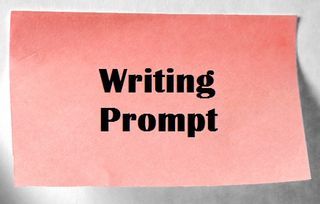 center on the clashing of characters��� goals and motivations. Sometimes a character���s goals and motivations arise from overcoming one���s fears. Here are four writing prompts for stories that deal with the theme of fear.
center on the clashing of characters��� goals and motivations. Sometimes a character���s goals and motivations arise from overcoming one���s fears. Here are four writing prompts for stories that deal with the theme of fear.
Man vs. nature
Our main character is placed in an environment that he has a great fear of it. Perhaps it���s a jungle where he���s afraid of snakes or a yacht where he���s afraid of the ocean. Why does he have this fear? When a threatening situation arises (plane crashes in jungle, yacht stuck in a tropical storm), how does he survive these forces of nature and how does he overcome his fear?
Man vs. man
A man discovers he���s being spied on but has no idea why. Fearful of what might occur to him, he decides to learn why he is being followed, not through a direct confrontation but secretly, as he believes this is the only way to learn the truth. In doing so, he engages in a deadly cat and mouse game with the man spying on him.
Man vs. society
The main character introduces some act of social innovation and progress to a parochial conservative community. How do some community members oppose this progress? How do a few others accept and even come to advocate it, making the conservatives even more paranoid of the change?
Man vs. himself
Our main character hears strange noises in the night, but when he goes to investigate, cannot determine what they are. They noises continue, however. What if our main character comes to believe he is going insane? How does he arrive at this conclusion? What if the noises symbolize in the emotions that lead is to doubt ourselves?
Professional Book Editor: Having your novel, short story or nonfiction manuscript proofread or edited before submitting it can prove invaluable. In an economic climate where you face heavy competition, your writing needs a second eye to give you the edge. I can provide that second eye.
&amp;lt;A HREF="http://ws-na.amazon-adsystem.com/widg... Widgets&amp;lt;/A&amp;gt;
Related articles
 Writing Inspiration: My words can light the way for someone else on a dark path.
Writing Inspiration: My words can light the way for someone else on a dark path. Today's Writing Inspiration: Your first written sentence is the foundation of all of your dreams
Today's Writing Inspiration: Your first written sentence is the foundation of all of your dreams Questions to ask yourself when plotting a story
Questions to ask yourself when plotting a story I refuse to give up on my writing because I haven't explored every possible way to revise it.
I refuse to give up on my writing because I haven't explored every possible way to revise it. How to create an interesting villain for your story
How to create an interesting villain for your story
May 9, 2016
How to choose a setting for your story
All too often, 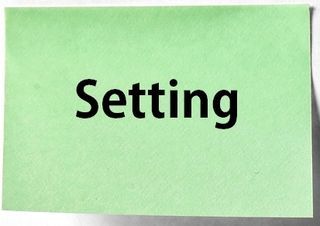 novice writers focus on plot and characters, overlooking setting to their story���s detriment. Simply put, the location of your story matters, as it ought to complement the plot and characters.
novice writers focus on plot and characters, overlooking setting to their story���s detriment. Simply put, the location of your story matters, as it ought to complement the plot and characters.
When selecting where you will set your story, allow it be more than a backdrop for your tale. You can accomplish this by ensuring your setting:
��� Offers opportunities for your character to have conflicts ��� If a character is experiencing a man vs. nature a man vs. himself conflict, then being marooned on an island is a great setting. That location won���t work for a man vs. man or a man vs. society setting, however. But think even deeper than that. Ask yourself where would the conflict and the plot our main character goes through best be expressed? Suppose, for example, that our protagonist, now retired, decides to move back to the place of his childhood and renovate an old residence that nature is quickly reclaiming. A good setting for this would be a forested area that is really far out in the boondocks, the complete opposite of a big, urbane city where he has lived his entire adult life.
��� Delivers a place where such conflicts naturally could occur ��� Don���t force a setting to fit the plot. Two ambitious corporate attorneys, for example, wouldn���t work in a small town but instead in a big city downtown high rise. Their environs are the restaurants, offices and penthouses of their corporate clients. If the attorneys chose to live and work in a small town, this would undercut the story���s believability.
��� Provides plenty of space for lots of action to occur ��� If your main character needs to grapple with kidnappers inside a building, make it a large skyscraper or a massive warehouse. A seaside village doesn���t allow a lot of space for a sophisticated spy to battle a criminal organization throughout a novel, though it would work fine in a scene.
��� Feels like real place to readers ��� A setting obviously can be made up but ought to feel like it actually could exist. That means appealing to the reader���s five senses in your description and then including parallels to something similar readers are familiar with (which is why so many science fiction novels structure spacecraft operations of the future like today���s naval vessels). If using a real place, always do your research so that you don���t include factual errors and so that you can provide evocative details that capture the location���s feel.
��� Improves the story���s quality via the feeling or tone of the setting ��� The seedy side of a city at night is perfect for a dark, gritty story. A swamp works well for a horror story. That���s because the emotions the setting evokes matches the story���s tone. If you���re successful at this, you probably will create an interesting and memorable setting.
Professional Book Editor: Having your novel, short story or nonfiction manuscript proofread or edited before submitting it can prove invaluable. In an economic climate where you face heavy competition, your writing needs a second eye to give you the edge. I can provide that second eye.
<A HREF="http://ws-na.amazon-adsystem.com/widg... Widgets</A>
Related articles
 Questions to ask yourself when plotting a story
Questions to ask yourself when plotting a story Use caution when shifting story's location, time
Use caution when shifting story's location, time
May 8, 2016
Five Great Quotations for Aspiring Writers
���All you 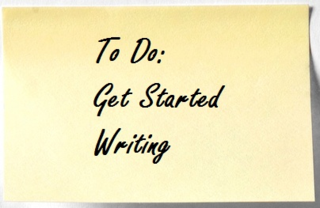 have to do is write one true sentence. Write the truest sentence that you know.���- Ernest Hemingway
have to do is write one true sentence. Write the truest sentence that you know.���- Ernest Hemingway
���Write what should not be forgotten.��� - Isabel Allende
���Never annoy an inspirational author or you will become the poison in her pen and the villian in every one of her books.��� - Shannon L. Alder
���If you have any young friends who aspire to become writers, the second greatest favor you can do them is to present them with copies of ���The Elements of Style.��� The first greatest, of course, is to shoot them now, while they���re happy.��� - Dorothy Parker
���Start telling the stories that only you can tell, because there���ll always be better writers than you and there���ll always be smarter writers than you. There will always be people who are much better at doing this or doing that - but you are the only you.��� - Neil Gaiman
Professional Book Editor: Having your novel, short story or nonfiction manuscript proofread or edited before submitting it can prove invaluable. In an economic climate where you face heavy competition, your writing needs a second eye to give you the edge. I can provide that second eye.
&amp;amp;amp;amp;lt;A HREF="http://ws-na.amazon-adsystem.com/widg... Widgets&amp;amp;amp;amp;lt;/A&amp;amp;amp;amp;gt;
quotations, aspiring writer
Related articles
 Five Great Quotations for Aspiring Writers
Five Great Quotations for Aspiring Writers Five Great Quotations about Bad Writing
Five Great Quotations about Bad Writing Five Great Quotations about Editing
Five Great Quotations about Editing
May 7, 2016
Affirmation: A negative view of your writing abilities never will lead to a positive manuscript.
When writing, 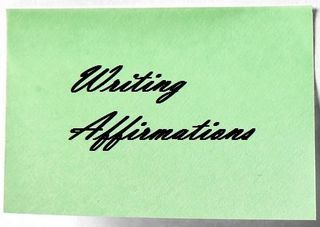 do you ever find yourself asking, ���What if nobody likes my book?���
do you ever find yourself asking, ���What if nobody likes my book?���
If you do, stop it! That���s really saying, ���What if I don���t like my book?���
After all, if you truly felt passionate not just about your writing but your talents, you���d ask, ���Why wouldn���t anyone not like my book?���
There���s a difference between being constructively critical and overly negative. When you���re the latter, you turn the critique into a personality attack on yourself. You���re putting yourself down as an incapable writer who doesn���t deserve to be read.
Granted, your writing probably isn���t perfect. No author���s writing ever is on the first draft. The key then is to identify specific problems with your story and to devise actionable ways of resolving them. For example, you might say, ���My writing has too many passive voice sentences. I need to locate them in the text and revise most of them.��� This is a constructive way of approaching your writing.
As you make those corrections, you not only improve your story but strengthen your writing skills and so will be less likely to write in passive voice on future drafts or books. The skill becomes natural.
Think of it like a serious weight lifter. If he says, ���I need to improve my arm strength,��� he identifies some specific exercises that bulk up biceps, triceps and delts. And then he does those exercises. After some time, his arm muscles grow larger.
Don���t adopt a defeatist attitude toward your writing. Instead, change the way you communicate with yourself and then bulk up on your writing skills!
Professional Book Editor: Having your novel, short story or nonfiction manuscript proofread or edited before submitting it can prove invaluable. In an economic climate where you face heavy competition, your writing needs a second eye to give you the edge. I can provide that second eye.
&amp;lt;A HREF="http://ws-na.amazon-adsystem.com/widg... Widgets&amp;lt;/A&amp;gt;
Related articles
 How to make your writing more vivid
How to make your writing more vivid Writing Affirmation: You cannot improve as a writer until actually revising something you wrote
Writing Affirmation: You cannot improve as a writer until actually revising something you wrote Write winning query letter to editors, agents
Write winning query letter to editors, agents Writing inspiration: Read your favorite author
Writing inspiration: Read your favorite author Writing inspiration: Model a story
Writing inspiration: Model a story
May 6, 2016
Utilize mainstream media to promote book
In a day  when everyone touts social media, never underestimate the value of using mainstream media to get word out about your book. Indeed, there are plenty of benefits of getting an article in a newspaper or magazine and an interview on the radio or television.
when everyone touts social media, never underestimate the value of using mainstream media to get word out about your book. Indeed, there are plenty of benefits of getting an article in a newspaper or magazine and an interview on the radio or television.
First and foremost among them is free publicity that reaches a lot of people. While the reach of newspapers, magazines, radio and television certainly is not the same as in the pre-Internet age, it is still is seen by a sizeable number of people, and at least a few of them will be interested in your book. In addition, mainstream media articles invariably appear online and so are tweeted and shared using social media, which only expands your reach to your target audience.
Mainstream media coverage also gives you credibility. A bias against self-published books still exists (though it���s decreasing) but that vanishes for your book when articles about you and your book appear in print or are broadcast. Because mainstream media deemed you rather than someone else worthy of coverage, others will take this respect from the gatekeeper as meaning you are worthy of their respect, too.
The respect from this publicity can lead to additional opportunities to sell your books. You may be contacted by those organizing events related to writing or to your book���s topic. You might garner additional coverage from competing news outlets or from local bloggers. You can use the fact that you received coverage as a selling point to get your titles into bookstores or other retail outlets that sell books related to our topic.
Lastly, such popularity helps build your author���s platform. It gives you items to post on your blog and website and articles to tweet or share via social media. Doing this in turn leads to more followers on various social media platforms and more addresses on your email list.
No time spent working on and sending out a press kit is wasted so long as you generate one article or interview from it. Speaking from personal experience, coverage in mainstream media sometimes alone is enough to propel my books to No. 1 in sales; when combined with a good social media campaign, it���s a guarantee that my book will top Amazon.com���s charts.
Professional Book Editor: Having your novel, short story or nonfiction manuscript proofread or edited before submitting it can prove invaluable. In an economic climate where you face heavy competition, your writing needs a second eye to give you the edge. I can provide that second eye.
<A HREF="http://ws-na.amazon-adsystem.com/widg... Widgets</A>
Related articles
 Use social media to market your book
Use social media to market your book Add hashtags to your social media posts
Add hashtags to your social media posts Follow social media etiquette during promos
Follow social media etiquette during promos
May 5, 2016
What if your book topic already has been done?
What if 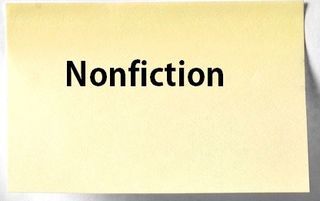 your nonfiction book idea is on a topic that���s already been written extensively about? Don���t tell yourself that writing such a book is pointless. After all, if a lot of people have penned books on the topic, that probably means there is money to be made from the topic!
your nonfiction book idea is on a topic that���s already been written extensively about? Don���t tell yourself that writing such a book is pointless. After all, if a lot of people have penned books on the topic, that probably means there is money to be made from the topic!
To outsell that competition, all you need to do is provide a book that better meets readers��� needs. That is your unique selling point.
To find that point, begin by going through Amazon.com reviews of your competitors��� works, focusing on what readers say is missing from those books and what they dislike about the organization and writing style. Draw up a list. Once you see a pattern, use that as a basis for outlining your book.
Typically, that list will include complaints in any one of the following (For examples of those let���s complaints, let���s pretend we���re reading reviews of books about bicycle repair.):
��� Skill level ��� This examines how much the subject was simplified. A reviewer might write ���This read more like it was for a bicycle repairman rather than a novice��� or ���Reads like it was written for kids.���
��� Demographic ��� Demographics refers to who the book was written for, or the target audience. A reviewer might say, ���The book was penned for those who doing serious bicycle touring not someone who just enjoys an afternoon ride around town.���
��� Writing style ��� This is the voice and tone of the text, as in ���Very technical, dry read, not a lick of humor in it.���
��� Organization ��� Often this involves the way the information is delivered through its structure, such as what���s in each chapter or the use of sidebars, as in ���An overview of the parts of the bicycle at the book���s beginning would have been helpful.���
��� Visuals ��� This refers to photographs, illustrations, charts and tables, as in ���Pictures showing how each step of the repair was done would have helped immensely.���
��� Approach ��� Many books have a ���gimmick��� that they center on, such as ���The Zen of Bicycle Repair.��� A complaint might be, ���The book focused too much on the spiritual aspect of bicycle riding as opposed to actual repair tips.���
Your books can be structured using this advice. Perhaps you will write it for an everyday bicycle rider. Maybe take on a conversational tone. Make it photo heavy. Offer a lot of practical, handy tips. Possibly title it ���Bicycle Repair for the Common Man.���
Be sure to keep this list for later ��� you���ll want to emphasize those points in your book���s back cover blurb, web page description, and when marketing it.
Professional Book Editor: Having your novel, short story or nonfiction manuscript proofread or edited before submitting it can prove invaluable. In an economic climate where you face heavy competition, your writing needs a second eye to give you the edge. I can provide that second eye.
&amp;lt;A HREF="http://ws-na.amazon-adsystem.com/widg... Widgets&amp;lt;/A&amp;gt;
Related articles
 Sales advantages of writing nonfiction books
Sales advantages of writing nonfiction books Stuff your book in a Little Free Library
Stuff your book in a Little Free Library Six great topics for authors to tweet about
Six great topics for authors to tweet about Writing Inspiration: Replace your old books with the books you've always wanted to write
Writing Inspiration: Replace your old books with the books you've always wanted to write Writing Inspiration: My words can light the way for someone else on a dark path.
Writing Inspiration: My words can light the way for someone else on a dark path.



